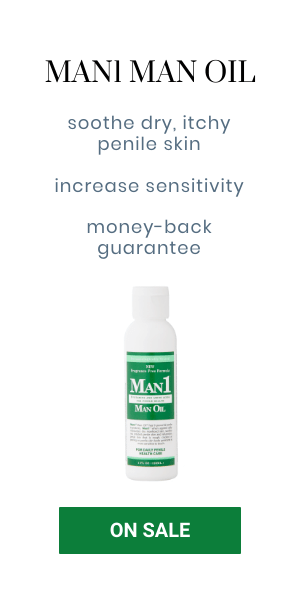It’s fiery, it’s prickly, and it’s downright unbearable – when a man feels pain during urination it’s certain to make him paranoid. Dysuria, fancy doctor-speak for painful urination is the condition that affects the bladder and its nearby parts. While it’s true that STDs can cause pain during urination, there are several other potential causes of painful urination and thankfully, most of them are treatable. Here’s a quick rundown of five of the most common causes of pain during urination and how to stop the burn.
#1: Urinary Tract Infection
Nope! Urinary tract infections aren’t just for women! A UTI happens when excess bacteria accumulate somewhere in the urinary tract. This part of the body includes the area from the kidneys through the bladder to the urethra, which is what carries the urine from the body.
In addition to pain during urination, men can experience other symptoms such as needing to urinate frequently, cloudy or blood-tinged urine, urine that smell particularly bad or sour, a fever, and pain in the side or back.
Treatment usually involves oral antibiotics. For those with a severe UTI, a trip to the doctor or hospital may be required for intravenous antibiotics.
#2: Kidney Stones
No doubt every man has heard a horror story from a buddy or his Pops about passing a kidney stone. Often remarked as the male equivalent of having a baby, kidney stones are comprised of the build-up of calcium or uric acid which create stones in and around the kidneys. When they are lodged in the area where urine enters the bladder, they can cause intensely painful urination.
Kidney stones also carry some additional symptoms like pink or brown tinted urine, nausea, cloudy pee, small spurts of urine, pain in the back and side, fever and chills intermittently, and pain that varies in intensity.
When it comes to kidney stones, men generally have to pass them (urinate them out), or if they are too big, shock wave lithotripsy may be needed to break up them into small pieces.
#3: Prostate Infection
A short-term bacterial infection, what’s known as prostatitis, can result in pain during urination. Symptoms that accompany this infection can also include difficulty in urinating or excessive urination (especially at night), difficulty ejaculating, and pain in the bladder, testicles, and penis.
Prostatitis is treated with antibiotics. If a man suffers from chronic bacterial prostatitis, he may need to take antibiotics for up to three months. Other modalities which help are hot baths, prostatic massage, anti-inflammatories, and alpha blockers (they relax the muscles around the prostate).
#4: Medications or Chemical Sensitivity
Often overlooked in a panic, many men have reactions to new medications or chemicals in everything from body wash to scented toilet paper to lubricants.
If a man is taking a new drug and notices painful urination, he should call his doctor to see if that is a side effect of the drug. If pain during urination happens with redness, swelling, rash, or itching, it may be an allergic reaction which can be treated with an anti-histamine and time (and of course, discontinued use of the offending product).
#5: Sexually Transmitted Infections (STIs)
STIs are often the first thing that pops into mind when a man experiences pain during urination. STIs such as chlamydia, gonorrhea, and herpes can cause painful urination since they affect the urinary tract. Each STI also has a host of potential partner symptoms, blisters or discharge, so if risky sexual behavior is potentially a cause, head to the doctor or a clinic immediately for testing. And of course, refrain from sex or masturbation until a diagnosis is given.
When to See the Doc for Painful Urination
Honesty, a prudent first step when experiencing pain during urination is to place a call to the doctor. This is especially true if the pain lasts longer than a day, it accompanied by unusual discharge, there is pain in the side or back, a fever is present, or the urine is red, pink, or brown.
While waiting for medical treatment, try to drink as much water as possible to dilute the urine and taking an over-the-counter anti-inflammatory to manage the pain.
Also, be sure the penis is clean and well-moisturized. Use a mild cleanser to wash the member, rinse thoroughly, and after drying, apply a specially formulated penis health crème (health professionals recommend Man 1 Man Oil, which has been clinically proven safe and mild for skin) . These types of crèmes contain all-natural ingredients and nutrients essential for penis health and wellbeing. Look for creams with a wide-range of vitamins such as A, B, C, D, and E, as well as a natural emollient like Shea butter that won’t aggravate tender genital skin.
